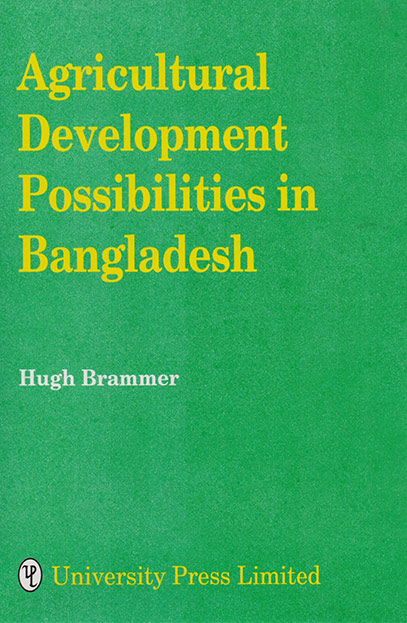
- Shop
- Social Sciences
- Agricultural Development Possibilities in Bangladesh
Agricultural Development Possibilities in Bangladesh
https://uplbooks.com/shop/9789840513574-agricultural-development-possibilities-in-bangladesh-13570 https://uplbooks.com/web/image/product.template/13570/image_1920?unique=56f7a2e
| Language: English |
Tags :
Book Info
This book includes selected papers on crop suitability and agricultural development based on the author's extensive experience with soils and agricultural development in Bangladesh. Written between 1974 and 1989, the papers range from popular journal articles to formal reports to Government. The successive chapters, updated by footnotes, provide a realistic appraisal of the opportunities for increasing agricultural production in Bangladesh's diverse environments. Part I, written specially for this book, provides background information on Bangladesh's physical characteristics to assist readers in understanding the rationale for crop selection, soil management and development possibilities in different parts of the country. Part II, comprises a set of eight popular articles which, by focusing on specific disaster-prone and difficult environments, provide a comprehensive review of regional aspects of development. Part III, comprises edited versions of five reports and discussion papers which describe the potential for production of HYV rice, wheat and other cereals, and review experience with wheat cultivation. Part IV, contains three papers which focus on crop suitability and crop diversification. An additional final chapter provides a synthesis of the principles of agricultural development and crop suitability assessment which underlie the previous chapters.

Hugh Brammer
Hugh Brammer (MA, Geography, Cambridge University, 1951) worked on reconnaissance soil surveys in the Gold Coast/Ghana 1951−61, then joined FAO to organise the reconnaissance soil survey of East Pakistan 1961-71. After serving as Senior Soil Scientist in Zambia 1972-74, he returned to Bangladesh in 1974 to serve with the Ministry of Agriculture as land use (later agricultural development) adviser until his retirement from FAO in 1987. Mr Brammer then worked as a consultant for FAO and the World Bank until 1995, including for Bangladesh’s Flood Policy Study (1989), the Flood Action Plan (1989−95) and a Greenhouse Effects Study (1992). He subsequently wrote seven books on soils, agriculture and land use in Bangladesh, published by UPL. In 2006, Mr Brammer initiated


